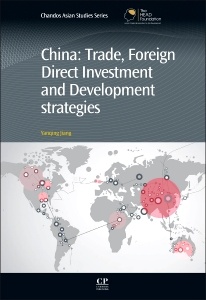Description
China
Trade, Foreign Direct Investment, and Development Strategies
Chandos Asian Studies Series
Language: English232 p. · 15.5x23.2 cm · Hardback
Description
/li>Contents
/li>Readership
/li>Biography
/li>Comment
/li>
Trade and foreign direct investment (FDI) play a crucial role in shaping China?s development strategies. The development of China?s economy creates strong pressures for continuous restructuring. China therefore explores how trade and FDI affect China?s development strategies regarding the process and pattern of restructuring. The book aims to provide the reader with findings that shed new light on the related issues and problems. The first chapter introduces the topics, and subsequent chapters enter into theoretical discussion and empirical analysis of trade, FDI, and development strategies, followed by a concluding final chapter.
This book will be useful for ademic researchers, students and teachers of economics, business and other related social sciences. General readers who are interested in learning about the Chinese economy will also find this book relevant.
- Based on a rigorous theoretical framework
- Applies various statistical and econometric methods
- Uses rich and comprehensive data
These books may interest you

FDI, Technology and Innovation 105.49 €

FDI, Technology and Innovation 105.49 €



